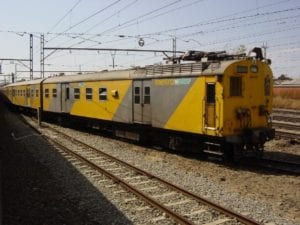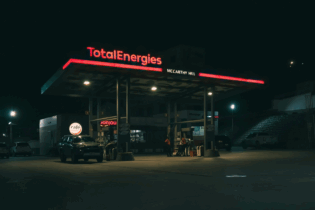The state and safety of South Africa’s decades-old passenger trains came under the spotlight at Parliament on Tuesday.
“Metrorail trains fail in all respects to meet international standards, except their heating system,” Passenger Rail Agency of SA (Prasa) chief executive Lucky Montana told MPs. This included modern safety features such as “automatic train protection” systems and the “enduring crashworthiness” of passenger coaches. Briefing members of the public services select committee, Montana warned that many of the country’s passenger coaches – almost all of which are between 20 and 50 years old – would soon become unsafe to use. “If we had our wish, we would be scrapping these trains in the next three years, because they will not be safe to carry people beyond (this date),” he said. Prasa Rail, a division of the agency, uses 4638 coaches in its urban Metrorail operations and 1223 on its long-distance Shosholoza Meyl. According to a document tabled at Tuesday’s briefing, the average age of Metrorail coaches is 40 years, while the average age of coaches in the Shoshloza Meyl fleet is 33 years. Government plans to invest heavily in new rolling stock over the next 20 years, acquiring 7224 “new modern coaches”. Montana said a feasibility study – involving Prasa, the National Treasury, and the departments of transport and public enterprises – had now been completed. “It shows that this country requires 7224 new modern coaches over a period of 20 years. The first 3600 coaches will be bought in the first 10 years.” Montana said a request for proposals for the design of the coaches had been put out to certain companies on April 19 this year. “We’ve asked them to give us a train that will run on our lines for the next 40 years… and the companies are busy writing up their proposals…. Come November this year, we will announce a preferred bidder that we will negotiate with and reach a conclusion.” Such a conclusion – including signing a contract – would be completed by the middle of next year. Montana said that given the state of the coaches currently operated by Prasa Rail, many were asking why new coaches were not being bought immediately. “We can go and buy the train overseas… and we can have them next year. But we’ve made a choice… We must use this investment to revitalise our rail engineering industry. So these trains are not going to be imported. “They are going to be built (in South Africa)… We are saying build the plant (to manufacture the coaches) here. A total of 65 percent of that train must be components that are manufactured here.” This would revive the industry and allow the country to “design, manufacture, and export trains in the future”.Montana said the first train would roll out of the new manufacturing plant in 2014/15.
“We expect the first train to be tested in 2015.” He said the programme would create “about 65 000 jobs”. It would also provide an opportunity to train a new generation of railway engineers and artisans. On Black Economic Empowerment, Montana said there was a “very huge stake” for BEE in the process. “There is a huge stake, between 26 percent and 40 percent.” Montana also suggested there would be a scheme to involve Prasa employees in the programme. “They must be given a stake in this process.” Prasa would announce in the next fortnight “how this BEE programme is going to unfold”. Montana also told MPs that Prasa would be investing R7 billion in new, modern rail signalling systems. The agency would be investing almost R26 billion into rolling stock and infrastructure development programmes over the period 2012/13 to 2014/15. Referring to two major train accidents involving Prasa-operated trains last year, Montana said the agency had been very lucky. “In both accidents… we lost only a driver. We have been very fortunate. We could have had a catastrophe.” He said human error was the cause of all recent train accidents, and not old equipment. “You would expect that in an old system (like ours) that the cause of the accident would be equipment, signal, or brake failure. But no. All the accidents we’ve had in the past three years have been due to human error… either negligence or someone not following procedure.” Source: http://www.iol.co.za






